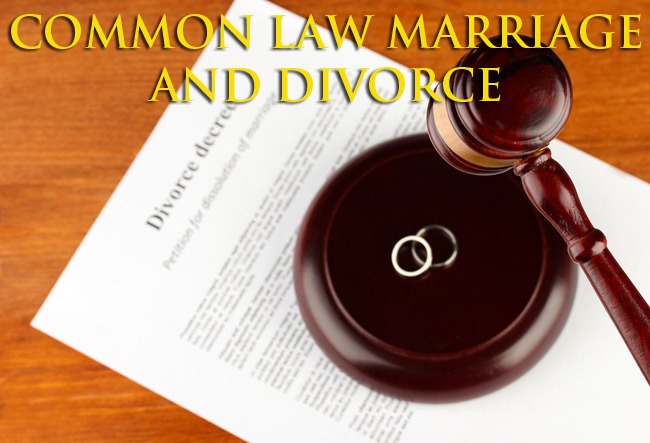
The statutes in Texas provide two methods by which individuals may marry. The first option is to obtain a license and thereafter participate in a ceremonial marriage. The second option is known as a common law marriage. A common law marriage may be establish in one of two ways. First, the parties may elect to execute and process a declaration of their marriage. The second option is more widely used. Under the second option, the statute requires the parties to establish three elements, being:
A. The man and woman agree to be married;
B. After the agreement they live together in Texas as husband and
C. While living together in Texas they represent to others that they are wife; andmarried.
The three elements appear to be relatively simple to follow. However, the amount of litigation the three elements have generated is remarkable. The reason is that the terms give rise to multiple interpretations. For instance, the first element requires an agreement. While a written agreement is not required, the situation becomes difficult if one party testifies that there was an agreement and the other party testifies that there was never an agreement to be married.
The other term that generates significant litigation is the term represented. This is typically referred to as the element of “holding out.” The question becomes whether the parties held themselves out to others as being married. If multiple third parties testify that each party introduced the other as the husband or wife, then perhaps the marriage would be easily established. Of course, there is usually conflicting testimony however as to how the couple represented themselves, or held themselves out, to third parties.
The issue becomes more complex when parties decide to separate and must decide whether to file a suit for divorce. It should be noted that a “common law” marriage is as legally binding in Texas as a ceremonial marriage. Therefore, careful consideration should be made as to whether a petition for divorce should be filed. Multiple financial ramifications, including tax consequences, will result from the decision.
The Law Offices of David Kohm of the Dallas area is experienced in assisting you in all family law divorce matters and is ready to help you get the financial support you need. Also with offices now in Cedar Hill and Garland TX, in addition to 10 other offices in the DFW area.
Get in touch with a divorce lawyer today at 817-204-9000, or contact us online, and our attorneys will get back to you as soon as possible.
Read more at http://www.attorneykohm.com/blog/child-support-five-things-you-need-to-know/#mu6HsiK8sd56Mtgh.99
Faun Rowland is also an attorney with David Kohm and Associates. She has been practicing in the area of family law for fifteen years. In addition, she has been an adjunct professor of law at Tarrant County College for approximately seven years. Faun is a member of the State Bar of Texas, State Bar of California (inactive), Tarrant County Bar Association, and the Tarrant County Family Law Bar Association.










